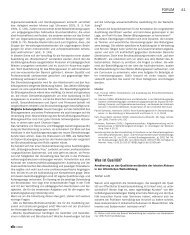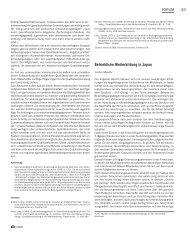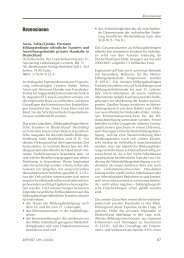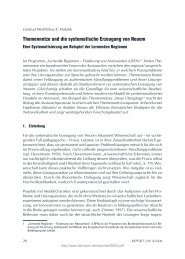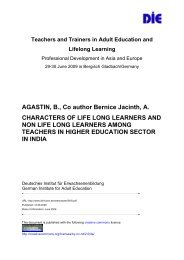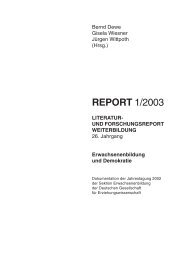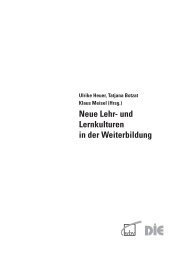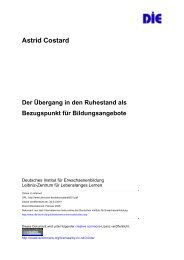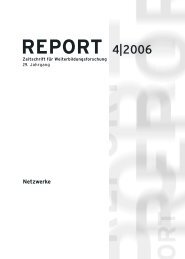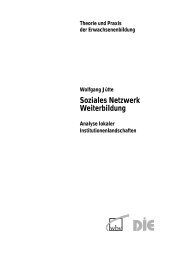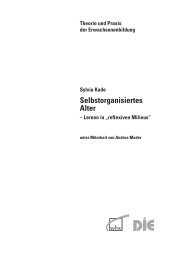Accreditation of Prior Experiential Learning (APEL)
Accreditation of Prior Experiential Learning (APEL)
Accreditation of Prior Experiential Learning (APEL)
Create successful ePaper yourself
Turn your PDF publications into a flip-book with our unique Google optimized e-Paper software.
ecame highly dependant on tutor input. The apprehension experienced at the start <strong>of</strong><br />
the <strong>APEL</strong> process was due to the fact that it was a new way <strong>of</strong> learning; they had to<br />
learn to be self-directive, reflective and draw on new forms <strong>of</strong> knowledge such as their<br />
own life experiences.<br />
At the end <strong>of</strong> the process most students valued the insight gained from reflection on<br />
their life and pr<strong>of</strong>essional experiences, especially for forcing them to link theory and<br />
practice. Most students said that they would recommend the <strong>APEL</strong> process to other<br />
adult learners.<br />
6. The Future Scenario <strong>of</strong> <strong>APEL</strong> for European Universities<br />
<strong>APEL</strong> is increasingly having an important role to play in opening universities to nontraditional<br />
universities in certain European countries. Those countries that are at a<br />
starting point are beginning to realise the significance <strong>of</strong> <strong>APEL</strong> for lifelong learning and<br />
social inclusion policy agendas. It is likely, therefore, that <strong>APEL</strong> will continue to expand<br />
as a learning strategy. A number <strong>of</strong> implications and future scenarios, however,<br />
can be identified by asking the following questions:<br />
What impact will <strong>APEL</strong> have in terms <strong>of</strong> questioning traditional academic knowledge<br />
and learning processes in universities? Will the wider implementation <strong>of</strong> <strong>APEL</strong> ensure<br />
that other forms <strong>of</strong> knowledge – “really useful knowledge” (Johnson 1988) – will be<br />
valued within academia?<br />
What impact will <strong>APEL</strong> have on the constitution <strong>of</strong> the student population and the<br />
widening access agenda? Will it result in a broader and more heterogeneous student<br />
population, characterised by an increase in non-traditional adult students?<br />
Could <strong>APEL</strong> be used to facilitate mobility in terms <strong>of</strong> individual social mobility, mobility<br />
<strong>of</strong> students between national and European universities and employee mobility <strong>of</strong><br />
graduates across Europe?<br />
Has <strong>APEL</strong> the potential to blur the boundaries between formal and informal learning?<br />
<strong>APEL</strong> enables a learner to use their biographical experiences reflectively. In doing so<br />
they are constructing a self-identity (Giddens 1991). To what extent will <strong>APEL</strong> form part<br />
<strong>of</strong> the process in influencing a learner’s identity in university? To what extent will<br />
biographical experiences in the family, community or work, for example, influence the<br />
future university curriculum, thus further linking learning and experience?<br />
The above require a cultural and organisational shift in universities if these scenarios<br />
are to be achieved, particularly within the elite, traditional institutions.<br />
Universities traditionally are sites for the re/production <strong>of</strong> knowledge. What constitutes<br />
knowledge is narrowly defined, confined to scientific and technical knowledge across<br />
different disciplines. However, that idea <strong>of</strong> the university is now contested as the claim<br />
is made that universities are no longer the sole producers <strong>of</strong> knowledge (Lyotard 1984).<br />
63


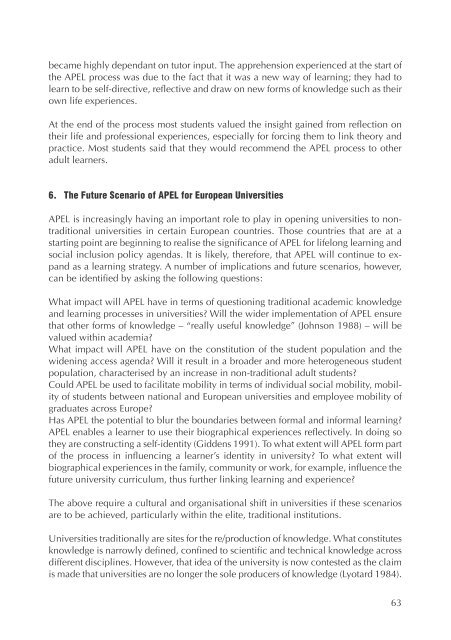
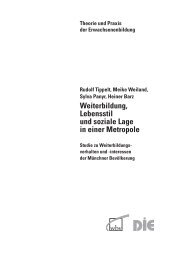
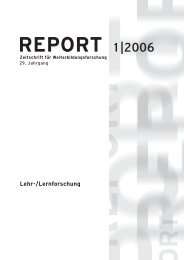
![PDF [KB 892] - Deutsches Institut für Erwachsenenbildung](https://img.yumpu.com/7495168/1/144x260/pdf-kb-892-deutsches-institut-fur-erwachsenenbildung.jpg?quality=85)
